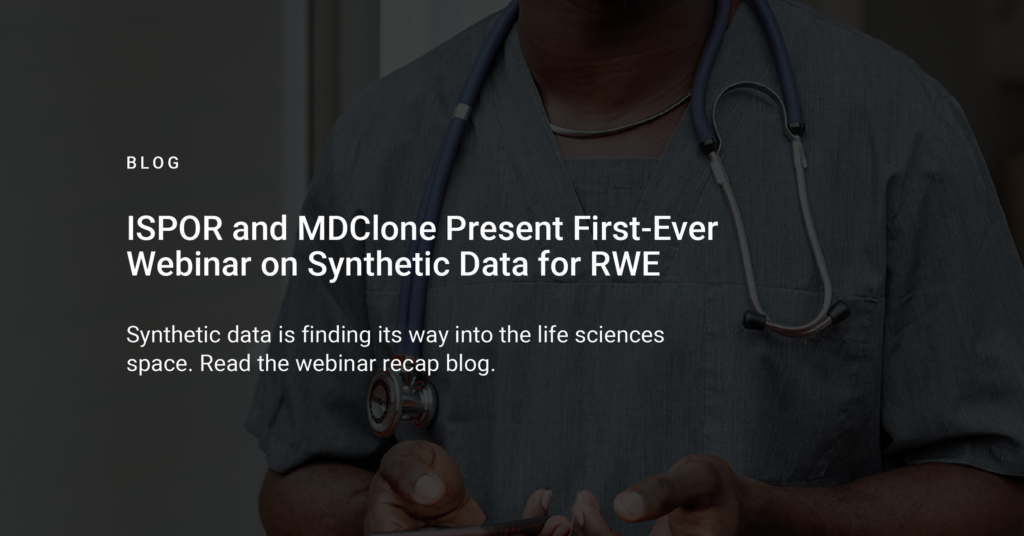Synthetic data is at last finding its place in the life science space. Life sciences organizations can use synthetic data to:
-
better understand disease populations
-
zero in on populations for clinical trials
-
explore new indications for approved drug products
-
perform hypothesis testing
-
and more
Although the concept is new in the life science and pharmaceutical industries, using synthetic data for life science research can have far-reaching impacts on patient and economic outcomes.
The Professional Society for Health Economics and Outcomes Research, or ISPOR, together with digital health company MDClone, recently hosted a first-of-its-kind webinar on the use of synthetic data for real-world evidence (RWE). Titled “The Convergence of Synthetic Data and Self-Service Analytics to Create a New RWE Model,” the webinar unearthed the benefits, challenges, and underpinnings of synthetic data for the life sciences.
The event targeted life science organizations, biotechnology companies, and pharmaceutical companies. It featured speakers from MDClone, ISPOR, and Vifor Pharma.
“Synthetic data has the potential to offer another excellent resource for HEOR.”
“Depending on how limited access to real-world data is, the one potential for synthetic data is that it can be resident at a company or licensed by a company to provide easy access to data for exploratory analysis and modeling, and those are the kind of things we need to do our work.”
Noa Zamstein, Director of the MDClone Research and Data Science Center, gave an overview of synthetic data, how they are created, and how to assess their benefits. Zamstein emphasized that synthetic data preserves the utility of patient data without the constraints of typical patient privacy concerns.
“If we look at the data points themselves, we see that no points are reproduced between the original and synthetic data,” Zamstein said.
Willke stressed the HEOR uses of synthetic data for RWE. Synthetic data — such as those created by MDClone — can have immense benefits on research and development, studies on medication effectiveness and cost, health economic modeling, and health technology assessments.
Finally, speaker Henrik Schou — Vice President, Global Head, Evidence Generation of Vifor Pharma — outlined the vast opportunities for synthetic data in the pharmaceutical industry. This includes the novel ability to share and explore study data with multiple stakeholders. Synthetic data allows pharmaceutical companies to crunch information such as that found in smart devices, surveys, and other data. Synthesized data can allow companies to more easily explore their massive datasets, ease the application process for pricing, and enable more rapid market access, among other benefits.
“We look at three main stakeholders to satisfy with evidence and medical data: the physicians, the payers, and the patients,” Schou said. “And the job of medical evidence — the all-singing, all-dancing RWE — is to make sure that those three stakeholders have the best available information in front of them when they make a decision about how to treat a patient with a given product or not to treat a patient with a given product. It’s really key that evidence is brought to those three stakeholders to allow optimal treatment of patients.”
Learn More
To stay in the know about LS and MDClone, join our newsletter.










